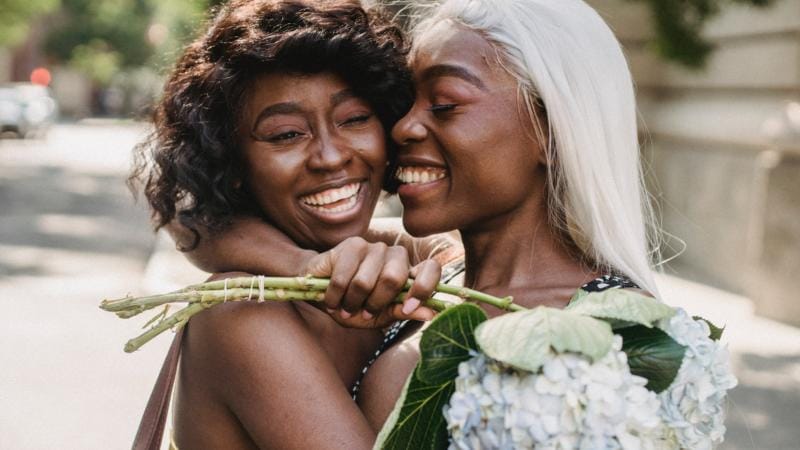As we reflect on the legacies of various Black ancestors and trailblazers, it’s evident that there are so many stories of Black LGBTQ historical figures that we aren’t aware of. Often, prominent Black people have even had their queerness erased from history. This erasure extends even further for Black queer women in history, whose very existence challenges patriarchal heteronormativity and confronts white supremacy.
In examining the struggle around notions of identity and community, it’s crucial to understand the complex social, political, and cultural landscape in the U.S. that influences our lived experience. While even the most well-intentioned people, programs, and organizations aim to uplift marginalized voices, they often fall short by homogenizing the diverse experiences within communities. As Kimberlé Crenshaw astutely points out, identity-centered activism can ignore intragroup differences, perpetuating a narrow narrative that fails to capture the full spectrum of experiences.
Those who live at the intersection of multiple systems of oppression often face unique challenges due to their very identities. The particular challenges that Black queer women face, for example, are often obscured as we fail to take into consideration the experience of simultaneously navigating homophobia, racism, and misogyny.
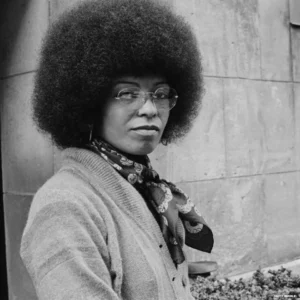
Despite legal advancements in LGBTQ+ rights, the fight for liberation and equality is far from over, particularly for Black Americans who continue to face systemic injustices such as voter suppression and criminalization. The historical parallels between queerness and Blackness underscore the interconnected nature of these struggles, highlighting the need for intersectional thinking and activism.
In celebrating Women’s History Month and honoring the contributions of LGBTQ+ activists, it’s essential to center the voices of Black queer women who have been at the forefront of the fight for equality. Their resilience and courage in the face of intersecting oppressions serve as a powerful reminder of the ongoing struggle for justice and liberation. As we pay tribute to our Black ancestors and trailblazers, let us ensure that their queerness is not erased but celebrated as an integral part of their legacies.
Below, we’ve amplified the voices and stories of just a few Black queer women who have made indelible marks on LGTBQ+ history. By shedding light on their resilience, advocacy and leadership, we seek to honor their legacies and challenge the systematic barriers that continue to marginalize Black women today. In doing so, we hope to increase the recognition and celebration our community receives, ensuring that the impact of Black queer women is acknowledged and that their voices are rightfully heard.
Audre Lorde: A Literary Luminary and Intersectional Activist
Audre Lorde stands as a towering figure in LGBTQ+ and feminist movements, using her poetry and essays to dissect the intersections of race, sexuality, and gender. Born in 1934, Lorde’s writings, including “Zami: A New Spelling of My Name” and “The Cancer Journals,” explored themes of identity, empowerment, and social justice. As an openly lesbian woman of color, Lorde challenged mainstream feminism to embrace intersectionality, emphasizing the importance of acknowledging the unique struggles faced by marginalized communities. Through her advocacy and scholarship, Lorde continues to inspire generations of activists to dismantle oppressive systems and cultivate inclusive spaces for all.
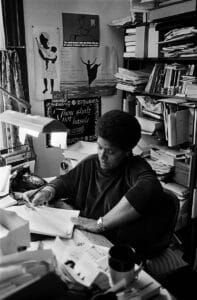
Marsha P. Johnson: Trailblazer for Transgender Rights and Visibility
Marsha P. Johnson, a transgender woman of color, played a pivotal role in igniting the modern LGBTQ+ rights movement through her fearless activism during the Stonewall Riots in 1969. As a co-founder of the Gay Liberation Front and the Street Transvestite Action Revolutionaries (STAR), Johnson tirelessly advocated for transgender rights and visibility. Despite facing discrimination and violence, she remained a resilient force for change, challenging societal norms and paving the way for greater acceptance and inclusion of transgender individuals. Johnson’s legacy endures as a symbol of resilience and defiance against systemic oppression, reminding us of the importance of centering transgender voices in the fight for LGBTQ+ equality.
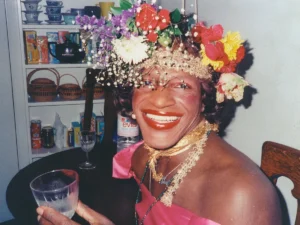
Barbara Smith: Pioneer of Intersectional Feminism and LGTBQ+ Advocacy
Barbara Smith, a co-founder of the Combahee River Collective in 1974, spearheaded intersectional feminism by emphasizing the unique struggles faced by Black queer women. Through the collective’s groundbreaking statement, the Combahee River Collective Statement, Smith highlighted the interconnected nature of race, gender, and sexuality, laying the groundwork for inclusive activism. Smith’s advocacy extended beyond feminism to LGBTQ+ rights, as she co-founded Kitchen Table: Women of Color Press, a publishing house dedicated to amplifying the voices of marginalized communities. Through her writing, activism, and scholarship, Smith continues to inspire intersectional movements for social justice and equity.
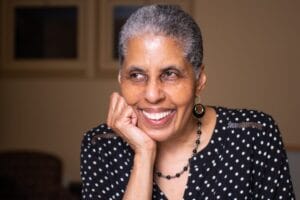
Ma Rainey: The Mother of the Blues and a Queer Icon
Ma Rainey, known as the “Mother of the Blues,” was not only a pioneering figure in the world of music but also a queer icon whose legacy challenges conventional narratives. Born Gertrude Pridgett in 1886, Rainey’s bold and unapologetic presence on stage broke boundaries, paving the way for future generations of Black queer performers. Despite societal norms of the time, Rainey lived openly as a bisexual woman, defying expectations and embracing her true self. Through her music and persona, she challenged heteronormativity and inspired countless individuals to embrace their identities with pride.
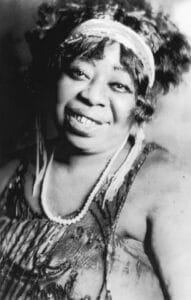
Gladys Bentley: A Harlem Renaissance Trailblazer and Gender Nonconforming Performer
Gladys Bentley, a prominent figure of the Harlem Renaissance, defied gender norms and societal expectations through her electrifying performances and unapologetic self-expression. As a gender-nonconforming blues singer and pianist, Bentley captivated audiences with her flamboyant style and powerful voice, challenging perceptions of gender and sexuality in the 1920s and 1930s. Bentley’s audacious presence on stage, coupled with her openness about her lesbian identity, made her a trailblazer for LGBTQ+ visibility at a time when such visibility was exceedingly rare. Her contributions to music and her fearless embrace of her identity continue to inspire queer artists and activists today.
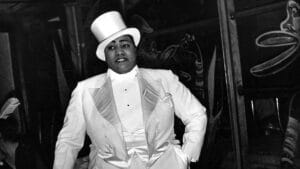
And continuing our journey through the rich tapestry of Black queer history, here are a few contemporary leaders who are fearlessly fighting for greater visibility and equality today.
Janet Mock: A Transgender Rights Advocate and Media Trailblazer
Janet Mock, a transgender writer, director, and producer, has been a leading voice in advocating for transgender rights and visibility. As the author of “Redefining Realness” and “Surpassing Certainty,” Mock has shared her personal journey as a transgender woman of color, challenging stereotypes and increasing visibility in media representation. Mock’s work extends beyond literature to television, where she served as a writer, producer, and director on shows such as “Pose” and “Hollywood.” Through her storytelling and advocacy, Mock has pushed for greater acceptance and understanding of transgender individuals, paving the way for more inclusive narratives in media and society.
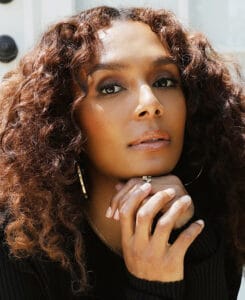
Laverne Cox: A Transgender Actress and LGBTQ+ Advocate
Laverne Cox, an Emmy-nominated actress and transgender activist, has shattered barriers in Hollywood and beyond. As the first openly transgender person to be nominated for a Primetime Emmy Award, Cox has used her platform to advocate for LGBTQ+ rights and visibility. Through her groundbreaking portrayal of transgender characters in “Orange Is the New Black” and “Disclosure,” Cox has challenged misconceptions and fostered empathy, while her advocacy work has championed equality and inclusion. Cox’s resilience and activism have made her a trailblazer for transgender representation in media, inspiring countless individuals to embrace their authentic selves and demand respect and dignity.
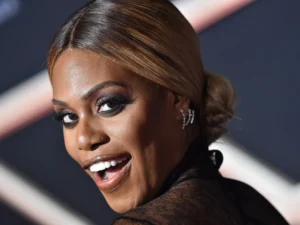
Brittney Griner: A Professional Athlete and LGBTQ+ Advocate
Brittney Griner, a professional basketball player, has been a vocal advocate for LGBTQ+ representation and acceptance in sports. As one of the few openly lesbian athletes in professional sports, Griner has courageously confronted homophobia and discrimination, both on and off the court. Through her visibility and advocacy, Griner has challenged stereotypes and paved the way for greater inclusion of LGBTQ+ athletes in sports. Additionally, Griner has used her platform to support LGBTQ+ youth and advocate for equality in sports policies and practices. Her leadership and resilience continue to inspire athletes and fans alike to create more inclusive and welcoming environments for all individuals, regardless of sexual orientation or gender identity.
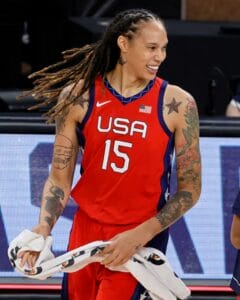
This Women’s History Month, as we pay tribute to our ancestors and contemporary trailblazers alike, let us ensure their queerness is celebrated and their stories are rightfully heard. Together, let’s continue to challenge systemic barriers and foster inclusive spaces where every individual’s identity is honored and respected.

